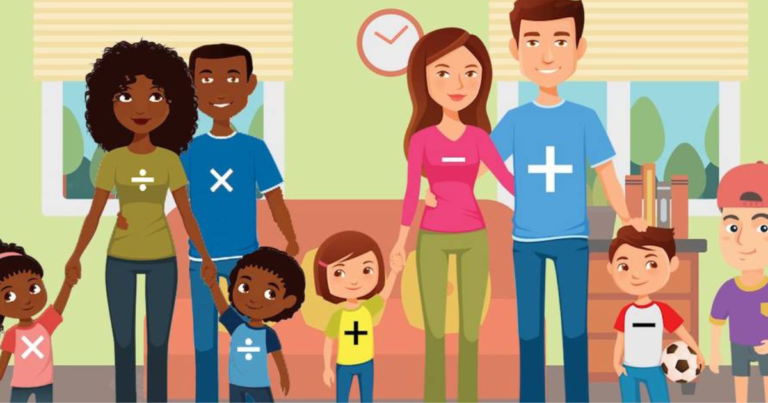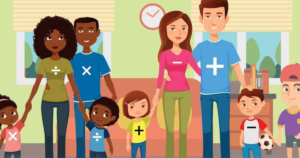In today’s fast-paced digital world, slang and abbreviations are essential to communicating quickly and efficiently, especially through text messages, social media, or online chats. Whether you’re texting a friend or posting on social media, you’ve likely come across abbreviations like “LOL,” “BRB,” or “OMG.” However, one abbreviation that might catch your attention is “LKR.” So, what exactly does “LKR” mean in text messages?
What is LKR?
LKR is an abbreviation used in texting and online messaging that stands for “Like.” It’s a shorthand version of the word that people use to save time when they are typing messages. For instance, if someone sends you a message that says, “I LKR that idea,” they mean, “I like that idea.”
Why Use Abbreviations Like LKR?
Texting abbreviations such as LKR make online communication faster and easier. Typing full words takes time, and when you’re in the middle of a fast-moving conversation, using abbreviations can help you get your point across without slowing down the conversation.
For example, imagine you’re chatting with a friend about your weekend plans. Instead of typing “I like the idea of going to the movies,” you could simply write, “I LKR the idea.” It’s a small change, but in a world where every second counts, these little shortcuts can make a big difference.
When Should You Use LKR?
LKR is an informal abbreviation, so it’s best used in casual conversations. You wouldn’t want to use it in a formal email to your boss or in a professional setting. However, when you’re chatting with friends, posting on social media, or sending a quick text, using abbreviations like LKR is perfectly acceptable.
Here are some examples of when to use LKR:
- In casual conversations with friends: “I LKR your new profile pic!”
- In social media posts or comments: “LKR if you think this is funny!”
- In group chats when discussing plans: “LKR the idea of going bowling!”
How to Respond When Someone Uses LKR
If someone uses LKR in a message to you, there’s no need to overthink your response. It’s just like when someone says “like” in a conversation. You can respond naturally by continuing the conversation as you normally would.
Here’s an example of how a conversation might go:
Friend: “I LKR the way the new restaurant looks.”
You: “Yeah, it’s really cool! We should try it out this weekend.”
As you can see, LKR doesn’t change the flow of the conversation. It’s simply a quick way to express agreement or approval.
Variations of LKR
Just like many other abbreviations, LKR can have a few variations depending on the context or the messaging platform being used. Some people might write it as “LKR” in capital letters, while others might write it in lowercase (“lkr”). Both are acceptable and mean the same thing.
Additionally, people might add emojis or other symbols alongside the abbreviation to add emphasis or express emotion. For example, you might see “LKR” to show that someone is happy about something they like.
The Importance of Understanding Abbreviations in Texting
As more and more abbreviations pop up in online conversations, understanding them becomes increasingly important. Abbreviations like LKR are part of a larger language that has evolved to suit our digital age. The more you learn about these shorthand phrases, the easier it will be to communicate quickly and effectively in the online world.
Not only do abbreviations like LKR make conversations faster, but they also add a layer of informality and friendliness to the message. When someone uses “LKR” instead of typing out the word “like,” it can make the conversation feel more casual and relaxed.
A Few Other Common Texting Abbreviations
If you’re curious about other abbreviations that are commonly used in texting and online messaging, here are a few examples:
- LOL – Laugh Out Loud: Used to indicate that something is funny.
- BRB – Be Right Back: Letting the person know you will return shortly.
- OMG – Oh My God: Expressing surprise or shock.
- TTYL – Talk To You Later: Used when ending a conversation.
- IDK – I Don’t Know: Indicating uncertainty or lack of knowledge about something.
Understanding these common abbreviations will help you stay in the loop during text conversations, and you won’t have to pause the conversation to ask what they mean.
Why Do People Use Abbreviations Like LKR?
You might wonder why people even use abbreviations like LKR in the first place. The simple answer is convenience. Abbreviations save time and effort, especially in text messaging, where people often want to communicate quickly without typing long sentences.
Another reason is character limits on some social media platforms like Twitter. When you only have 280 characters to express your thoughts, using abbreviations can help you stay within the limit while still getting your message across.
Are Abbreviations Like LKR Here to Stay?
As texting and online communication continue to evolve, abbreviations like LKR are likely to remain popular. While new abbreviations may emerge and others might fall out of use, the overall trend of shortening words for faster communication will continue.
However, it’s also important to remember that not everyone is familiar with every abbreviation. If you’re texting someone who may not be as familiar with texting slang, it’s always a good idea to use full words to avoid any confusion.
Final Thoughts
In conclusion, LKR is an abbreviation for “like” used in texting and online messaging. It’s a quick and easy way to express that you like something without typing out the full word. While it’s best used in casual conversations, it’s a handy tool for saving time and keeping the flow of a conversation going.
Now that you know what LKR means, you can confidently use it in your next text or social media post. Just remember to keep it casual and appropriate for the situation!





